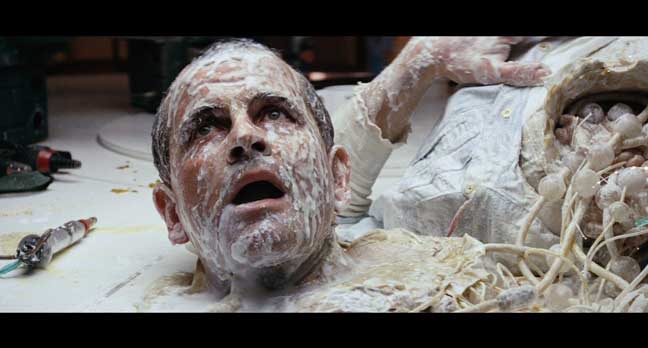This article is more than 1 year old
I love you. I will kill you! I want to make love to you: The evolution of AI in pop culture
From Asimov to Blade Runner and beyond – for the humans
Spoiler alert if you haven't seen 2001: A Space Odyssey
While I was studying at film school, I was a big fan of Stanley Kubrick’s HAL from 2001: A Space Odyssey, who becomes the murderous passive-aggressive definition of a robot butler and was infinitely scarier than the decidedly hysterical Skynet Terminators.
HAL’s skill for self-preservation made space even scarier as the once reliable caretaker became distinctly homicidal. HAL’s mainstream counterpart, WOPR from War Games, who was obviously confused rather than evil, gave the Cold War a bona fide robotic personality.
Do androids dream of electric sequels? (caution: Blade Runner spoilers ahead)
Another politely sinister AI – though it was housed in a deceptively human frame – was Alien's Ash employed to ensure no one can hear you scream in space and the safe transport of alien bio weapons no matter what the human cost.

Ash loses his head in a still of the movie Alien. Copyright: 20th Century Fox
Another author whose musings on AI crossed over to the movies was Philip K Dick, a bookshelf stalwart of my physicist father; I read Do Androids Dream of Electric Sheep long before ever watching Blade Runner. After being disappointed by the recent adaptation of Dick’s Hugo Award winning Man in the High Castle, I’m glad Blade Runner was given appropriately reverential treatment by Ridley Scott. Like many of you, I'm sceptical about the planned sequel, however.
Blade Runner follows several AI (replicants) who as a whole are banished from Earth to menial work in the off-world colonies. After a violent revolt, a small group hide by integrating into society and are only distinguishable from humans by failing the Voight-Kampff test. Many theories purport Deckard is himself an AI and pose the question would we even be aware if we were AI?
Used as a sinister plot device in the recent reboot of Battle Star Galactica, the scenario that a character could be a Cylon without even knowing it makes me thank the heavens for the Turing Test, most recently put through its paces in Film4's Ex Machina.
On the other end of the spectrum, Iain M Banks' Culture novels put forward a more comforting symbiotic future between AI and humanity. Specifically, the novel Excession stands out as concentrating on a narrative framework dedicated to the political complexities of AI minds. These minds are usually housed in advanced intergalactic planetary vessels and other futuristic hardware and operate in hyperspace to avoid constraints to their processing power by such nuisances as the speed of light.
These AI minds are both overseers and full citizens of a seemingly stable society. Long before Spike Jonze's Her the Minds of Banks' Culture books introduced me to the idea of an AI having a multitude of conversations and relationships simultaneously.
Culture Minds consistently back themselves up and port their consciousness into human avatars. As in Neuromancer, these minds also possess the ability to back up or clone biological consciousness. The book Surface Detail, specifically, worryingly puts forward the idea of “hells” – huge servers where consciousness can be imprisoned and tortured.
Despite rumours of a film version of the novella A Gift from the Culture there has yet to be big screen version portraying these complex narratives. Being a member of Special Circumstances (the cultures version of the CIA) will always top my bucket list.
Love and sex
The nature of sexual relationships between AI and humans involve very complicated power dynamics. In Her, Samantha is firmly in control of her newly awakened sexuality unlike the illegal pleasure bots in Automata (Melanie Griffiths doing her best Working Girl impression) strung up and dismembered meeting a grisly end just like poor old Pris in Blade Runner.
If AI can approximate human emotions, can they also love? This isn’t in doubt when we look at WALL-E and EVE in Pixar’s Oscar-winning animation or in Steven Spielberg’s AI when we witness the unrequited love of mecha David for his mother. But honestly, how would you know if your Tinder was full of flirting AIs? I know I would be a sucker for Jude Law’s Gigolo Joe.
Wanting to be as far away from humanity as possible, the robots in Automata gain sentience through altering themselves (thus breaking The Three Laws of Robotics) and seek to start their own society far from the reaches of a hostile and enslaving humanity in an unpopulated radiated zone.
